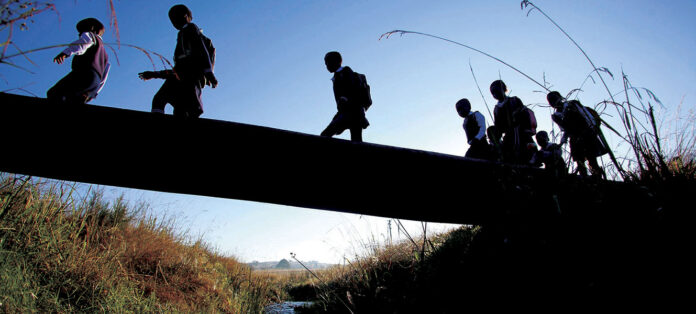The government’s sluggish rollout of tablets and internet access in rural schools has angered members of parliament (MPs).
MK Party MP Siphetho Mkhize said children in rural areas were becoming “victims” of a system that repeatedly leaves them behind.
“We do monitor certain trends and patterns across different portfolios, and what is currently being observed is that there is a pattern when it comes to rural communities — they are always found lagging behind in any form of development,” he told a joint sitting of the communications and education portfolio committees on Tuesday.
The communication committee’s Khusela Diko chaired the sitting, where MPs learnt that many rural and township schools still lack mobile network coverage.
Installation and maintenance costs remain prohibitively high even in cases where infrastructure is present.
Vandalism and theft exacerbate the situation by disrupting access and making it more challenging to maintain reliable connectivity.
Widening digital gap
Mkhize questioned the government’s capabilities and demanded immediate remedial action to bridge the digital divide.
His concerns were echoed by the DA’s Tsholofelo Bodlani and the EFF’s Mandla Shikwambana, who also raised alarm about the widening gap between urban and township schools.
MPs received assurances from the departments of basic education, communications and digital technologies that they were actively addressing these gaps.
The government is prioritising satellite connectivity to extend broadband to underserved areas, while provinces are deploying offline digital solutions, such as preloaded tablets and laptops.
These devices can be updated periodically when internet access becomes available, ensuring rural learners are not left out.
Shikwambana pressed officials on why the government had failed to deliver digital devices to all learners, as promised by President Cyril Ramaphosa in his 2019 State of the Nation Address.
R30-billion funding needed
According to Mathanzima Mweli, the director-general of basic education, the ambitious project needed R30-billion in funding, which the state was unable to provide.
“Clearly the government indicated that the money is not available. Therefore, we prioritised the project by focusing first on schools for individuals with disabilities and lower-quintile schools,” Mweli said.
Cell C’s failure to meet its obligations for connecting schools, particularly those for persons with a disability, presents another obstacle.
Although it was supposed to connect 1 457 schools, Cell C has only succeeded in connecting 1 386 so far.
The Independent Communications Authority of South Africa has since intervened, instructing Cell C to submit a revised rollout plan.
The operator began connecting the remaining 51 for learners with disabilities in June and is expected to complete the work by June 2026.



